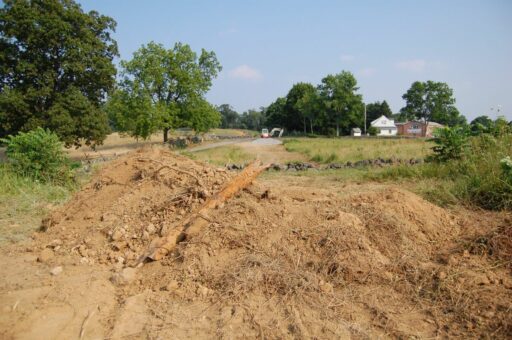Masonry is a critical aspect of construction, providing both aesthetic appeal and structural integrity to buildings. Whether you’re looking to build a new structure or repair an existing one, finding the right masonry contractor is essential. This guide aims to equip you with the knowledge and tools to identify the best masonry contractors in your area, ensuring your project’s success from start to finish.
Key Takeaways
- Understand the different types of masonry work and materials to ensure you choose the right contractor for your specific needs.
- Evaluate potential masonry contractors based on their experience, licensing, insurance, and the quality of their past projects.
- Plan your masonry project by clearly defining your needs, setting a realistic budget, and understanding the project’s timeline.
- Utilize online directories, local trends, and connections with supply stores to find reputable masonry services in your area.
- Ensure successful project completion through effective communication, quality monitoring, and clear agreements on payments and dispute resolution.
Understanding Masonry and Its Importance in Construction

Defining Masonry Work
Masonry work encompasses a wide range of activities related to the construction and maintenance of structures made from individual units of material, typically bound together by mortar. Masonry is a highly skilled trade that requires precision and an understanding of the properties of various building materials.
Masonry services can include tasks such as laying bricks, stones, or concrete blocks, repairing existing masonry, and applying decorative or protective coatings. The scope of masonry work is diverse, covering everything from simple repairs to complex architectural projects.
Masonry not only contributes to the aesthetic appeal of a building but also plays a crucial role in its structural integrity and durability.
Here is a list of common masonry services:
- Concrete Restoration
- Surface Renovation
- Structural Restoration
- Expansion Joints
- Joint Sealants
Understanding the full range of masonry services is essential when planning a construction or renovation project and selecting the right contractor for the job.
Types of Masonry Materials
Masonry work is not a one-size-fits-all trade; it involves a variety of materials, each with its own characteristics and uses. Understanding the different types of masonry materials is crucial for selecting the right one for your project. Common materials include bricks, stones, concrete blocks, and more specialized items like air barriers and waterproofing membranes.
- Bricks: Traditional and versatile, used for both structural and decorative purposes.
- Stones: Durable and aesthetically pleasing, ideal for natural-looking structures.
- Concrete Blocks: Cost-effective and functional, suitable for a wide range of construction needs.
In addition to these primary materials, there are various specialized products that play a significant role in masonry construction:
Specialty products such as air barriers, waterproofing, and sealants are essential for protecting masonry from moisture and environmental damage.
It’s also important to consider the auxiliary products used in masonry, like joint sealants and expansion joints, which ensure the longevity and durability of the masonry work.
The Role of Masonry in Building Durability
Masonry is fundamental to the longevity and resilience of buildings. Masonry materials, such as bricks, stones, and concrete blocks, are renowned for their durability and strength. These materials contribute significantly to a building’s ability to withstand environmental stresses and the passage of time.
Masonry construction, when executed correctly, provides an impenetrable barrier against the elements, safeguarding the interior from moisture, temperature fluctuations, and even pests.
The following list outlines some key aspects of masonry that contribute to building durability:
- Resistance to fire and pests
- Low maintenance requirements
- Longevity and aesthetic appeal over time
- Structural stability and support
It’s important to select a contractor who understands the critical role of masonry in ensuring a building’s durability. This is especially true for home remodeling projects in areas like Seminole County, FL, where expertise and specialized services are crucial.
How to Evaluate Masonry Contractors

Assessing Experience and Past Projects
When looking for the best masonry contractors, it’s crucial to assess their experience and the quality of their past projects. Experience is a strong indicator of a contractor’s ability to handle your specific masonry needs. Ask to see a portfolio of their previous work, and pay attention to the variety and complexity of the projects they’ve completed.
- Inquire about the types of buildings they have worked on.
- Ask for details on projects similar to yours.
- Request references from past clients to gauge satisfaction.
It’s not just about the number of years in the business, but the relevance and success of the projects undertaken.
Additionally, consider how the contractor handles project challenges and their problem-solving capabilities. This can often be discerned through discussions with previous clients or by reading reviews. For a more structured comparison, you may want to create a table listing potential contractors against key criteria such as years of experience, types of projects completed, and client feedback.
Checking Licenses, Certifications, and Insurance
When selecting a masonry contractor, it’s crucial to verify their professional credentials. Ensure they hold the necessary licenses to operate in your area, as these are indicators of their legitimacy and adherence to local regulations. Certifications can also provide insight into their level of expertise and commitment to industry standards.
- Check for general liability and workers’ compensation insurance to protect against potential accidents or damage.
- Confirm that the contractor’s licenses are current and have not lapsed.
- Look for certifications from recognized industry organizations, which may include specialized masonry skills.
It’s not just about compliance; these checks are a safeguard for your investment in the project.
Remember, a reputable contractor will be transparent about their qualifications and happy to provide proof upon request. This due diligence is a step towards a trustworthy and professional working relationship.
Reading Reviews and Seeking Recommendations
When searching for the best masonry contractors, reading reviews can provide valuable insights into the quality of work and customer satisfaction. Platforms like Angi offer a streamlined process to match with highly-rated local pros, allowing you to compare quotes and choose the right contractor for your project.
Seeking recommendations from friends, family, or online forums can also be beneficial. For instance, a post titled ‘Is this brick work acceptable?‘ on Contractor Talk may lead to discussions that highlight the importance of professional opinions in masonry.
It’s crucial to consider both positive and negative feedback, as they can reveal consistent patterns in a contractor’s service, which may impact your final decision.
Remember to look beyond the star ratings and read the detailed experiences of previous clients. This can uncover specific strengths or weaknesses that may align with your project needs.
Planning Your Masonry Project

Determining Your Needs and Preferences
Before embarking on your masonry project, it’s crucial to determine your specific needs and preferences. This initial step will guide the entire process, ensuring that the end result aligns with your vision and requirements. Consider the following aspects:
- The scope of the project: Are you looking to build, repair, or enhance?
- Desired aesthetics: What style and finish do you envision?
- Functionality: How will the structure be used?
- Longevity and maintenance: What are your expectations for durability and upkeep?
Establishing clear objectives at the outset will not only help you communicate effectively with potential contractors but also assist in making informed decisions throughout the project.
Once you have a solid understanding of your needs, you can begin to explore the various options available to you. This may involve researching different types of masonry materials, techniques, and design trends. Remember, the choices you make now will impact the project’s cost, timeline, and final appearance.
Setting a Realistic Budget
When planning a masonry project, setting a realistic budget is crucial to avoid financial strain and ensure project completion. Consider all potential costs, including materials, labor, permits, and any unforeseen expenses that may arise. It’s helpful to break down the budget into clear categories:
- Materials: The cost of bricks, stones, mortar, and other necessary supplies.
- Labor: Payment for the skilled masons who will be executing the work.
- Permits: Fees associated with obtaining the necessary permissions from local authorities.
- Contingency: An additional percentage of the total cost set aside for unexpected issues.
Remember, the lowest bid is not always the best choice. Quality and reliability may come at a higher price, but they are essential for a durable and satisfactory outcome.
To get a better understanding of the costs involved, you can refer to resources like ‘How To Estimate A Masonry Job: The Ultimate Guide – Contractor Plus’, which covers everything from material costs to labor considerations. Always get multiple estimates to compare and have a clear contract outlining the scope and cost of the project.
Understanding the Timeline for Completion
Understanding the timeline for your masonry project is crucial to ensure that your expectations align with the practical realities of construction. Project timelines can vary greatly depending on the scope and complexity of the work. It’s important to discuss with your contractor the estimated start and completion dates, and any factors that could affect this timeline, such as weather conditions or material availability.
When planning your project, consider the following phases:
Initial consultation and design phase
Procurement of materials
Actual construction work
Finishing touches and cleanup
Keep in mind that each phase can have its own set of variables that might extend the timeline. For example, custom materials may require additional lead time for production and delivery. It’s also wise to plan for a buffer period to accommodate any unforeseen delays. By understanding and planning for these phases, you can set a realistic schedule for your masonry project.
Navigating Masonry Services in Your Area

Utilizing Online Directories and Resources
In the digital age, finding the best masonry contractors can be as simple as a few clicks. Online directories and resources are invaluable tools for homeowners seeking professional masonry services. These platforms often provide comprehensive listings of contractors along with ratings, reviews, and sometimes even sample portfolios of their work.
When using online directories, it’s important to look for listings that are specific to your area. For example, a title like ‘24 Best Brick and Stone Masonry Contractors – Los Angeles CA‘ indicates a resource tailored to Los Angeles homeowners. Such localized directories can help you quickly identify the most reputable and experienced contractors nearby.
Remember, while online resources are convenient, they should be part of a broader strategy that includes verifying credentials and meeting contractors in person.
Here’s a quick checklist to guide you through the process of using online directories effectively:
- Search for contractors within your region.
- Review the ratings and feedback from previous clients.
- Examine the scope of services offered by the contractors.
- Check for up-to-date contact information and reach out for quotes.
Local Masonry Trends and Popular Styles
Keeping up with local masonry trends and popular styles can significantly influence the aesthetic and resale value of your property. Boldly embracing regional design nuances can set your project apart. For instance, paver patios and walkways are currently a hit for outdoor spaces, offering both charm and functionality.
When planning your masonry project, consider the prevalent styles in your area to ensure your construction blends in seamlessly with the local architecture.
In many regions, the use of sustainable and locally-sourced materials is on the rise. Contractors are increasingly incorporating eco-friendly practices into their work, such as using reclaimed bricks or natural stone. Here’s a quick list of popular masonry services:
- Concrete Repair
- Exterior Painting
- Masonry
- Roofing
It’s also worth noting that certain masonry services like firepits have become a focal point for modern outdoor living spaces. Staying informed about these trends can help you make educated decisions for your masonry needs.
Connecting with Local Masonry Supply Stores
Building a relationship with local masonry supply stores can be a cornerstone of your project’s success. These stores not only provide the necessary materials but can also offer valuable insights into local masonry trends and popular styles. Engage with the staff to learn about the best products for your specific needs and to get tips on working with masonry contractors in your area.
When visiting these stores, consider the following points:
- The variety and quality of masonry materials available
- The store’s reputation and the expertise of its staff
- Any ongoing promotions or discounts that could benefit your project
Remember, local suppliers are often well-connected within the community and can recommend reputable contractors who frequently purchase their materials. This can lead to introductions to skilled professionals who are familiar with the local building codes and aesthetic preferences.
Lastly, be cautious of online resources that lack comprehensive information. A website page about Best Contractors with limited content and no specific information should not be your sole source of information. Instead, use it as a starting point to identify potential suppliers and then follow up with in-person visits or direct communication.
Ensuring a Successful Masonry Project

Effective Communication with Your Contractor
Maintaining open and clear communication with your masonry contractor is crucial for the success of your project. Ensure that all expectations and requirements are understood from the outset to avoid misunderstandings later on. Regular check-ins can help keep the project on track and allow for timely adjustments if necessary.
Here are some tips for effective communication:
- Establish a primary point of contact.
- Agree on a schedule for updates and meetings.
- Use clear and concise language.
- Document all decisions and changes.
Remember, good communication is a two-way street. Be open to feedback and willing to discuss any concerns that arise during the project.
By following these guidelines, you can foster a positive working relationship with your contractor, ensuring that your masonry project is completed to your satisfaction.
Monitoring the Progress and Quality of Work
Keeping a vigilant eye on the progress and quality of your masonry project is crucial. Regular site visits can help you stay informed about the ongoing work and ensure that the project aligns with your expectations. During these visits, pay attention to the craftsmanship, the materials being used, and the adherence to the project timeline.
- Check for consistency in the workmanship across different sections of the project.
- Look for signs of quality such as clean lines, even spacing, and proper alignment.
- Verify that the materials used are as specified in your contract.
- Ensure that safety protocols are being followed at all times.
It’s important to establish a clear line of communication with your contractor. Discuss any concerns immediately and document the progress with photos or notes for future reference.
If discrepancies or issues arise, address them promptly with the contractor. A well-documented trail of communication and agreements can prevent misunderstandings and help resolve disputes efficiently.
Handling Payments and Avoiding Disputes
Ensuring smooth financial transactions with your masonry contractor is crucial for a successful project. Establish clear payment terms from the outset to avoid misunderstandings. Here are some steps to help you handle payments and avoid disputes:
- Agree on a payment schedule that aligns with project milestones.
- Use written contracts to document all payment terms and conditions.
- Keep a record of all payments made and received, including dates and amounts.
It’s also important to recognize that disputes can arise from various sources, such as payment issues or communication problems. To prevent and resolve conflicts:
- Maintain open and honest communication with your contractor.
- Address any concerns or issues as soon as they arise.
- Consider using a third-party mediator if disputes cannot be resolved directly.
When disagreements occur, approach the situation calmly and seek a solution that is fair to both parties. Remember, the goal is to complete your masonry project with quality results and mutual satisfaction.
Conclusion
Selecting the right masonry contractor for your project is crucial to ensure the durability and aesthetic appeal of your construction. Throughout this guide, we’ve provided you with a comprehensive approach to finding the best masonry professionals in your area, from understanding the range of services they offer to evaluating their reputation and work quality. Remember to consider the categories of work they specialize in, such as concrete repair, patios, or chimney work, and to request free estimates where available. By doing your due diligence and leveraging the resources and tips outlined in this article, you can confidently embark on your masonry project with a skilled contractor who meets your needs and expectations.
Frequently Asked Questions
What is masonry and why is it important in construction?
Masonry refers to the craft of constructing structures from individual units of materials like brick, stone, or concrete blocks, typically bound together with mortar. It’s important in construction due to its durability, fire resistance, and thermal mass, which contributes to energy efficiency.
How can I evaluate the experience of masonry contractors?
To evaluate a masonry contractor’s experience, review their portfolio of past projects, check for testimonials or references, and consider the diversity and complexity of the work they have completed.
What should I look for when checking a masonry contractor’s credentials?
When checking a contractor’s credentials, ensure they have the necessary licenses to operate in your area, professional certifications that attest to their skill level, and insurance to protect you against liability.
How do I set a realistic budget for my masonry project?
To set a realistic budget, obtain multiple quotes from contractors, understand the cost of materials for your chosen masonry work, and factor in any additional expenses such as permits or design services.
Where can I find reliable reviews or recommendations for masonry contractors?
Reliable reviews can be found on online directories, home service platforms, and through personal recommendations from friends or family who have had similar work done. Always look for consistent patterns in reviews to gauge reliability.
What steps should I take to ensure a successful masonry project completion?
To ensure success, maintain clear communication with your contractor, establish a written contract detailing the work to be done, monitor the project’s progress regularly, and address any concerns promptly. Also, ensure payments are made according to the agreed schedule and terms.





